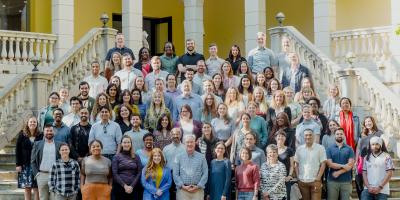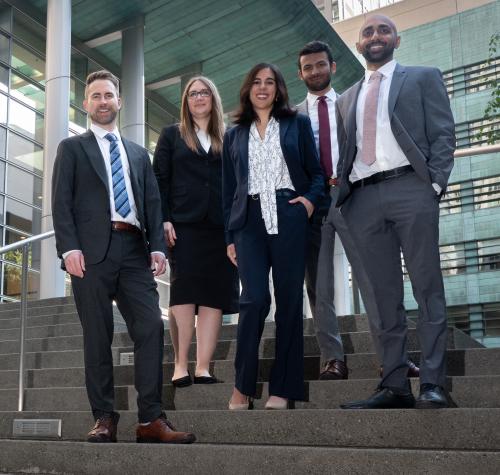Fair Voting Maps for Wisconsinites
A group of 19 Wisconsin voters, represented by CLC and co-counsel, won a lawsuit in 2023 invalidating the state’s legislative district maps. The Wisconsin Supreme Court ruled the existing maps unconstitutional because they included numerous noncontiguous districts — with some voters living in detached bits of territory miles away from the rest of their district.
The justices ordered new maps drawn in time for the 2024 election, setting up the first Wisconsin election under fair maps since 2010.
Wisconsin has some of the most badly gerrymandered districts in the country. In 2018, Democrats won 53% of State Assembly votes cast statewide, but ended up with just 36% of the seats.
Presidential Elections Protected From Manipulation
CLC played a crucial leadership role in the campaign to update the archaic Electoral Count Act, the 1887 law governing the certification of Electoral College Votes. Our campaign for new legislation began shortly after the January 6, 2021 attack on the U.S. Capitol building
The modernized and strengthened law, passed by Congress in 2022, will thwart attempts by partisan actors to overturn the will of the voters in their state, will make it far more difficult for members of Congress to object to the certification of Electoral College votes and clarifies that the vice president, who presides over electoral college vote certification, has no power to change the outcome of the election.
CLC is fully engaged in an effort to make sure states are complying with the new law, successfully advocating for updated election laws in states like Michigan and Arizona.
Election Workers Protected in Michigan and Nevada
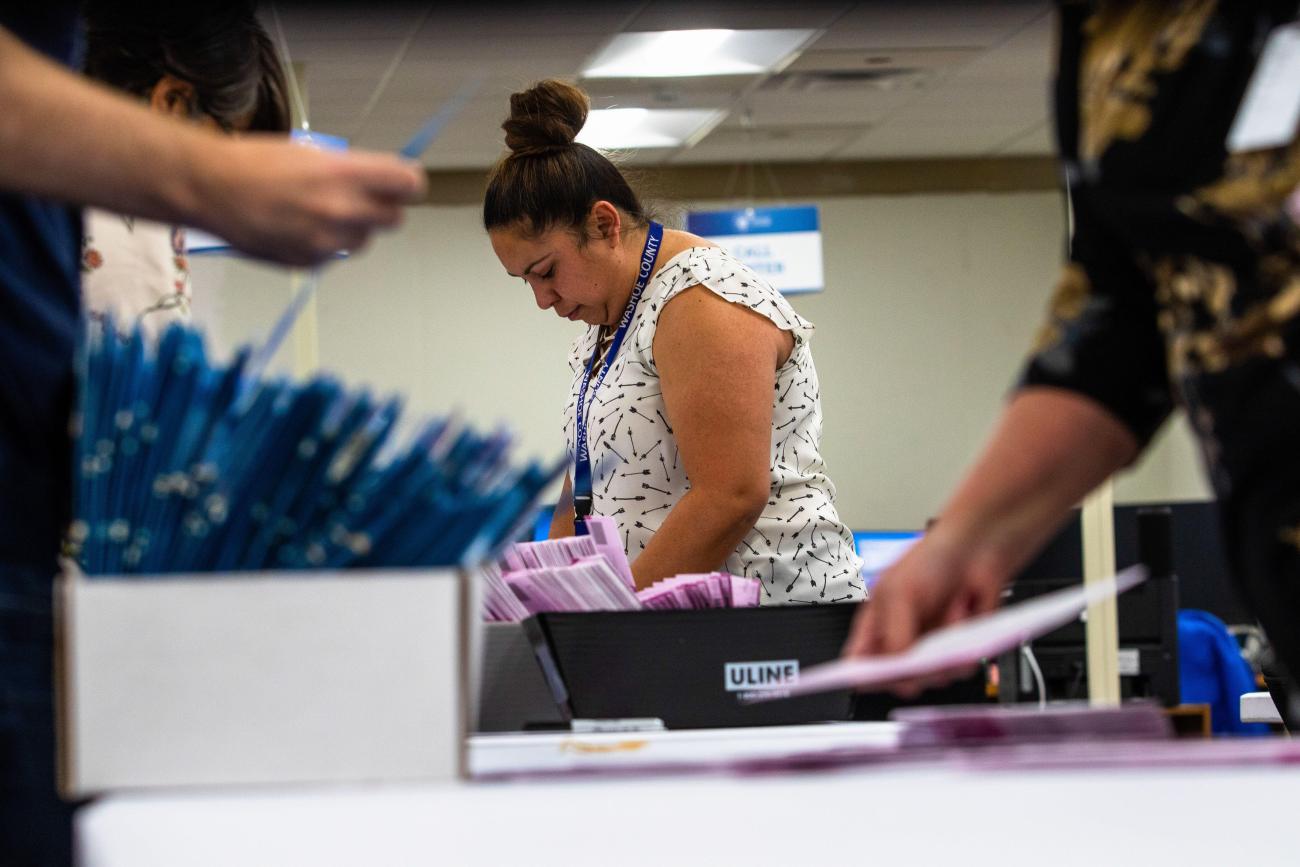
Campaign Legal Center, in partnership with local pro-democracy advocates, successfully supported and lobbied for the passage of laws in Michigan and Nevada that protect election workers by prohibiting threats and harassment. The Nevada law also specifically makes it a felony to “doxx” election workers, which involves publishing personal identifying information about someone online without their consent or knowledge, typically with malicious intent.
The rise of disinformation and misinformation about our elections has coincided with a rise in threats against election workers. A nationwide survey in 2023 revealed that nearly 20% of local election officials reported being harassed or abused, with an additional 11% reporting threats due to their jobs. The same survey found 73% believed threats and violence had increased in recent years.
Freedom to Vote for Latinos and Native Americans in Arizona Preserved
CLC’s clients — Living United for Change in Arizona (LUCHA), the League of United Latin American Citizens (LULAC), Arizona Students’ Association (ASA), and Arizona Democracy Resource Center (ADRC) — stopped anti-voter provisions of two Arizona laws that targeted Latino and Native American voters in the state. Latinos make up about 25% of the eligible voting population in Arizona. Native Americans make up about 6% of the state’s electorate.
Working on behalf of our partner organizations, CLC filed a lawsuit and won. This court victory prevents Arizona from rejecting voter registration forms submitted without documentary proof of citizenship, which discriminates against Latino citizens. The court struck down another provision that required applicants to provide documentary proof of their residence when registering to vote, which discriminates against Native citizens.
The ruling, which followed our clients’ advocacy assisted by CLC’s legal expertise, will also prevent the unlawful purging of voters from registration rolls within 90 days of an election and the rejection of registration forms that do not have the citizenship box ‘checked’ — even if proof of citizenship is submitted. The court also affirmed that tribal ID is appropriate proof of residency, and now, in some circumstances, voters can provide a written affidavit attesting to their residence.
Equitable Access to Vote-By-Mail Applications in Kansas Preserved
CLC on behalf of its clients, VoteAmerica and Voter Participation Center, won a lawsuit in 2023 against the state of Kansas, stopping restrictions on the activities of non-partisan civic engagement organizations. These organizations work to remove barriers to voting, focusing on groups of voters who are typically underrepresented, including young voters, communities of color and unmarried women. Activities include assisting with absentee voting and voter registration.
In 2020, an estimated 112,000 Kansas voters used a pre-paid/pre-addressed envelope to mail an advance ballot application provided by CLC’s clients in this lawsuit. A similar law is currently on hold in Missouri thanks to CLC’s litigation efforts.
Freedom to Vote Protected for Nearly 17,000 Alabamians
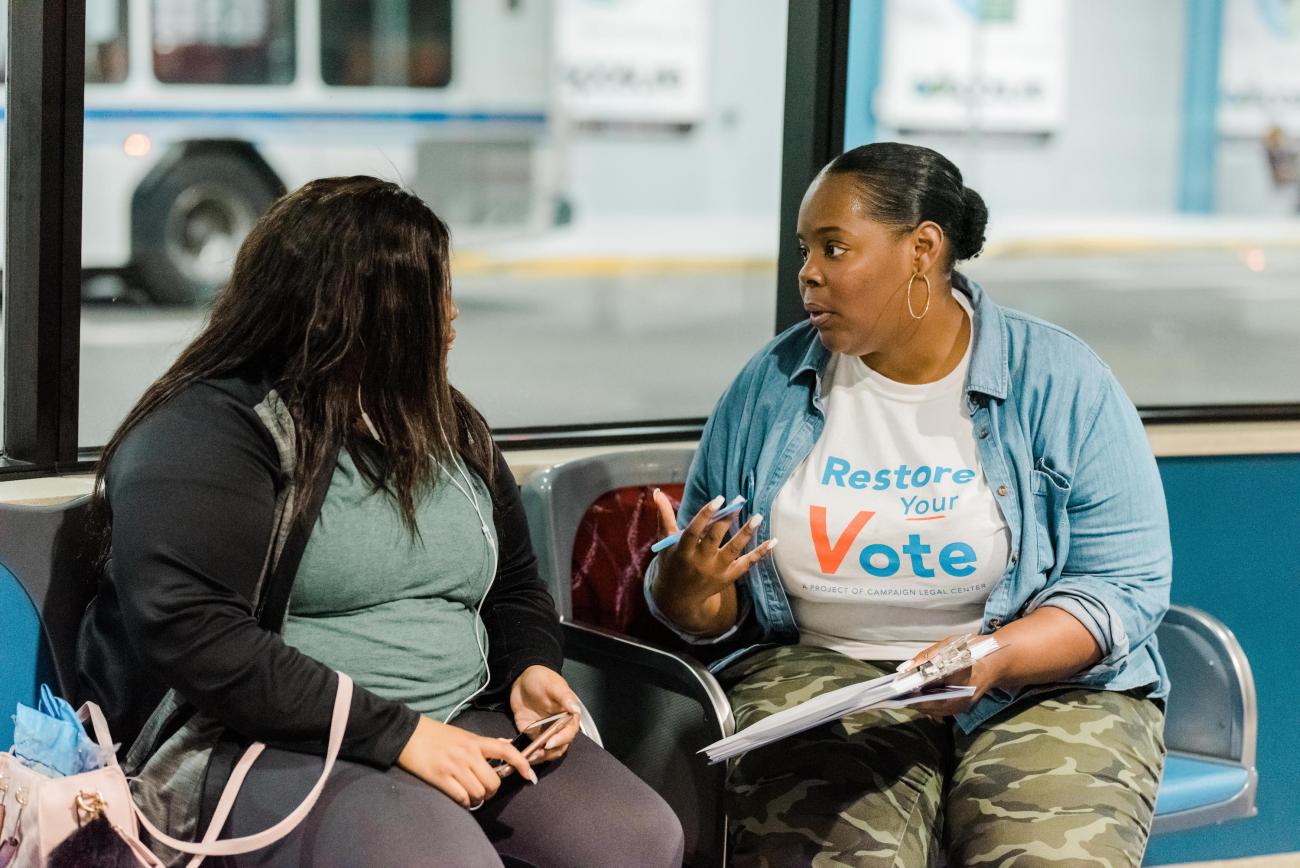
CLC filed a lawsuit on behalf of Greater Birmingham Ministries (GBM) seeking the release of public records related to lists of voters who had been purged from the rolls by the state, as well as Alabamians denied the right to vote due to felony convictions under the National Voter Registration Act (NVRA).
The records were released following a 2021 ruling in our client’s favor. CLC then partnered with GBM and other local organizations to contact the voters on those lists and assist those who were eligible to re-register to vote.
Equal Representation for Tens of thousands of Latinos in Washington State’s Yakima Valley Region
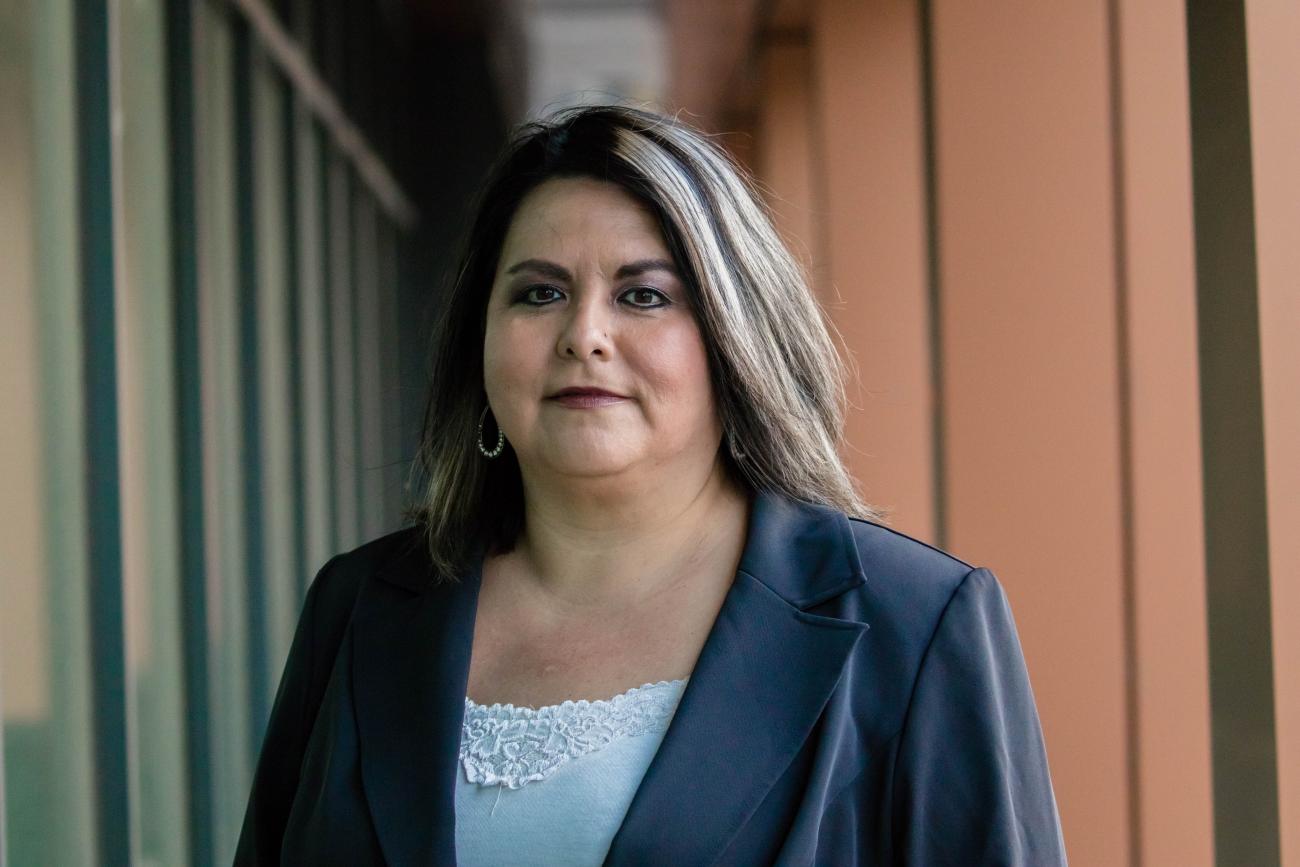
Latino voters, represented by CLC, won a lawsuit in August 2023 challenging voting maps that discriminated against the large and growing Latino community in Washington State’s Yakima Valley. Latinos are estimated to make up more than half of the region’s population.
The ruling means new maps will be drawn which will allow Yakima Latinos to elect representatives of their choice.
Equal Representation for Voters in Michigan Through Fair Voting Maps
CLC provided crucial expertise during the campaign for a successful 2018 ballot initiative that removed partisan politicians from the process of drawing voting maps in Michigan. The law faced legal challenges, and CLC, representing the Michigan organization Voters Not Politicians (VNP), successfully defended it all the way to the U.S. Supreme Court. Michigan voters first went to the polls under these fair maps in 2022.
This was not our first time bringing gerrymandering issues to the highest court: CLC led the legal coalitions that argued the landmark Supreme Court redistricting cases Gill v. Whitford sparking a nationwide movement for fair maps.
Equal Representation for Communities of Color in Virginia Beach, VA

Following a lawsuit brought by Virginia Beach voters represented by CLC, the city in August 2023 formally adopted an electoral system that will allow Black, Latino and Asian American Pacific Islander communities to elect representatives of their choice.
The change ends a more than 50-year legacy of discrimination against communities of color in how officials in Virginia’s largest city are elected.
Freedom to Vote Secured for Black Americans and Other Voters of Color in Connecticut
CLC’s expertise and written and oral testimony played an important role in the June 2023 enactment of the Connecticut Voting Rights Act. The law provides new legal tools to fight discriminatory voting laws in court, and creates strong protections against voter intimidation, deception or obstruction.
Connecticut is one of several states to adopt a voting rights act that largely mirrors protections in the federal Voting Rights Act – a law that has been severely undermined due to harmful decisions by the U.S. Supreme Court.
The value of state voting rights acts was demonstrated in August 2021, when Latino voters in Yakima County, WA, represented by CLC, won a lawsuit that accused the local government of violating the Washington State Voting Rights Act. The lawsuit was the first of its kind.
Real Election Spending Transparency for Arizona Voters
CLC’s years-long effort to ensure voters have access to accurate information about who is spending huge sums of money to influence elections through ads is playing out in Arizona. In 2022, 72% of Arizona voters endorsed a law requiring those funding political ads to disclose the original source of donations they receive over $5,000.
Largely based on model legislation designed by CLC, this law allows Arizona voters to understand who is trying influence their elections. Outside interests funding thousands of dollars of ads in Arizona elections can no longer hide behind shell organizations with names like, “Arizonans for Freedom.”
A More Equitable Campaign Finance System for Voters in Oakland, California

CLC provided valuable expertise and support for a successful 2022 ballot initiative creating a public financing system for political candidates in Oakland, California known as “Democracy Dollars.” As a result, eligible residents can use the voucher-based program to meaningfully support the financing of their preferred candidates and reduce the influence of wealthy special interests.
New Rules Against Illegal Coordination Between Special Interests and Candidates in Philadelphia
CLC provided expert guidance, including in-person testimony in favor of accountability measures in the city of Philadelphia forbidding a practice known as “redboxing,” where candidates make sophisticated, detailed information about campaign strategy available to supportive outside spenders.
This form of illegal coordination perpetuates the status quo of politicians relying on a handful of powerful special interests to fund their campaigns. CLC is playing a leading role nationwide in the effort to stop this clearly unlawful activity, which has become widespread in American politics.
Accountability for Campaign Finance Violators in the Face of Regulatory Inaction
CLC Action is suing the National Rifle Association directly for campaign finance violations that the FEC has refused to investigate. CLC is the leading organization pursuing private rights of action against federal campaign finance law violators.
The FEC has routinely fails to even begin investigations after campaign finance violation complaints are filed with the agency. CLC has won many lawsuits challenging the FEC’s failure to do its job as a law enforcement agency, building a body of case law that will force the FEC to act more effectively in future elections.
Independent Ethics Investigatory Body in Congress Defended and Preserved
CLC led a pressure campaign in January 2023 to protect the Office of Congressional Ethics (OCE) from changes approved by the new House majority. Those changes would have severely undermined OCE’s ability to perform its duty, which includes investigating allegations of illegal conduct by members of Congress.
Following CLC’s advocacy House leaders from both sides of the aisle took steps to ensure OCE could continue to effectively carry out its mission.
Thousands of Mail-In Ballots Saved From Rejection in New York State
CLC’s clients won a settlement in June 2021 which protected mail-in ballots in New York State from rejection due to minor errors or procedural barriers. CLC and our partners represented the League of Women Voters of New York and an individual client.
Modified rules adopted after the lawsuit was filed resulted in a ten percent drop in the rejection rate for mail-in ballots between the 2018 and 2020 general elections in New York.
Election Spending Transparency Laws in Rhode Island and Santa Fe, New Mexico Preserved

CLC served as outside co-counsel in Rhode Island and represented the city of Santa Fe, successfully defending laws requiring disclosure around election spending all the way to the U.S. Supreme Court.
Preserving disclosure laws such as these means protecting voters’ right to know who is trying to influence their decisions in our elections.
Law Requiring Members of Congress to Disclose Stock-Trading Activities Enforced for the First Time
A CLC complaint led to the first true enforcement of the STOCK Act by OCE in October 2021. The law requires members of Congress to disclose their stock trading activities, information which tells voters if their elected representatives are acting in the public interest or for their own financial gain.
CLC’s action led the member in question, Rep. Tom Malinowski (D-NJ) to place his stock holdings in a blind trust, pay a fine, and become a co-sponsor of legislation to ban stock trading by members of Congress.
